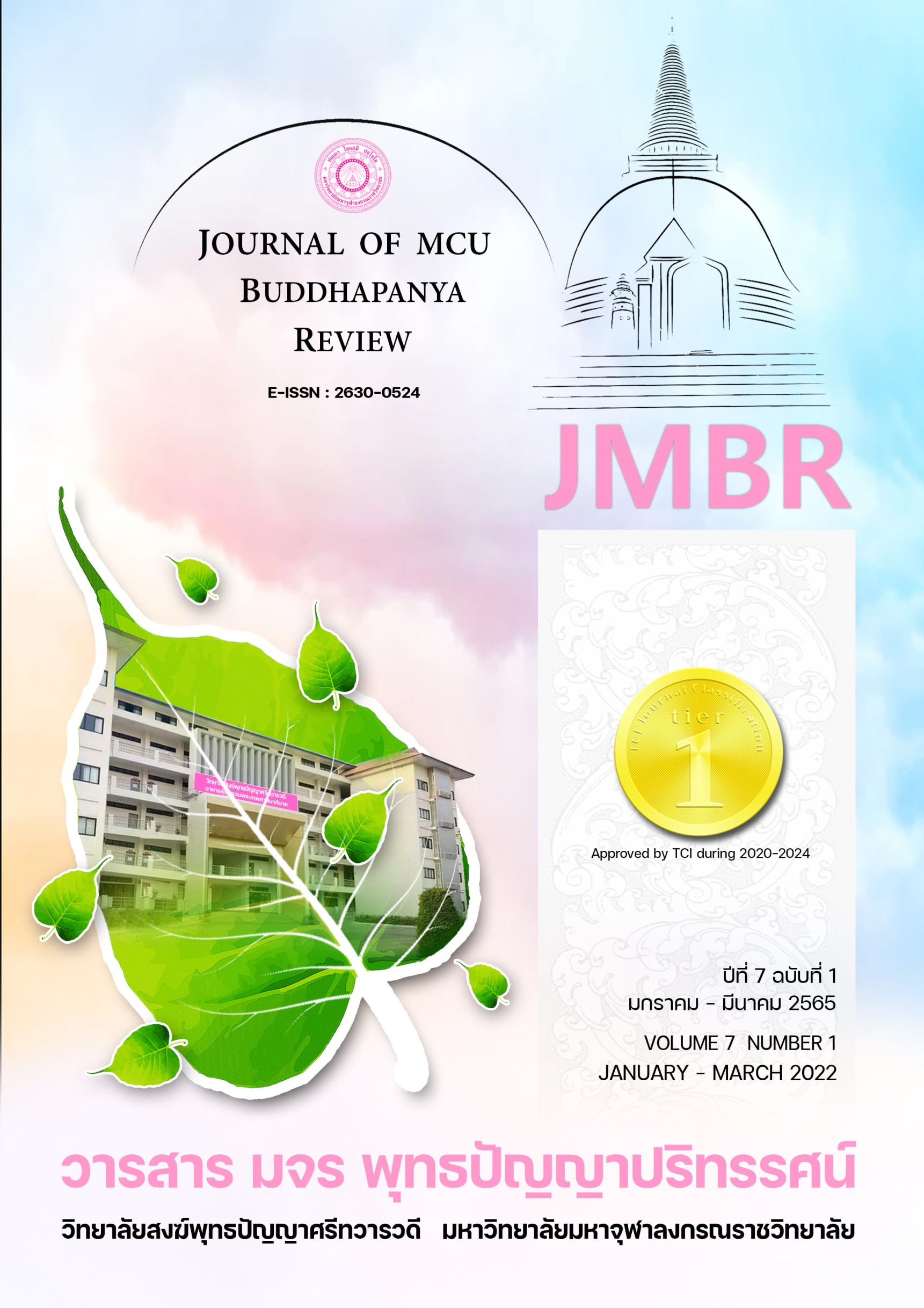SOCIAL NETWORK, EXPLORATORY AND EXPLOITATIVE LEARNING IN ETHNIC MINORITY ENTERPRISES : CASE STUDIES OF LOCAL CULTURAL PRODUCT, NORTHERN THAILAND
คำสำคัญ:
Micro and Small Enterprises, Social Network, Learning Outcome of Firm, Ethnic Minority, Local Cultural Productบทคัดย่อ
The network of Micro and Small Enterprises Development Policy in Thailand was formally launched in 2003 with the government supports, though, during the 20 years of development, some of them were no longer sustained especially during the Covid-19 pandemic. This study explored the elements of sustainable Ethnic Minority’s Micro and Small Enterprises Network (MSEs) and mapped out of the networking model by using the network analysis tool to explain the learning outcomes of the firm: the exploration or exploitation that will help them sustained until now. The research used a mixed-method. The data were collected by an in-depth interview, two MSEs networks in northern Thailand were selected as case studies. 30 people were interviewed; 15 members per network. Data were analyzed by using content analysis, constant comparison and confirmed by descriptive statistic for analyzing Social Network by using the number of network relationships from UCINET (2022). The research findings found that these two MSEs networks represented the characters of the Industrial Districts (IDs) Model; the geographical location, the coordination & competition, the network alliance, and new inventions. For the network development, each network had an external relationship with other institutes. However, internally, each network had different types of ties, levels of strength of strong/weak ties. One case was the business network the other one was social embeddedness. It confirmed by a number of network relationship for 0.4 and 0.7 of 1. These reflected the type of learning outcomes of networks as explorative and exploitative of knowledge respectively. This research results demonstrated that the sustainability of MSEs in this context came from the relationships in the networks and the innovative development of their products both exploration and application of the traditional knowledge.
เอกสารอ้างอิง
Alberti, F G. and Pizzurno, E. (2015). Knowledge Exchanges in Innovation Networks: Evidences from an Italian Cluster. Competitiveness Review, 25 (3), 258–287.
Allal, M. (1999). Business Development Services for Micro and Small Enterprise in Thailand. Bangkok: International Labour Organisation.
Atsan, N. (2016). Failure Experiences of Entrepreneurs: Causes and Learning Outcomes. International Strategic Management, 12, 28-30.
BBC News (2021). Corona Virus and Thai Economy. Retrieved March 13, 2022, from : https://www.bbc.com/thai/thailand51500412
Carbonara, N. (2002). New Models of Inter-firm Network within Industrial Districts. Entrepreneurship and Regional Development, 14, 229–246.
Community Development Department. (2019). OTOP Registration. Retrieved August 15, 2019, from: http://www.CDD.go.th/th/
Contractor, Noshir. et. al. (2006). Testing Multi-Theoretical, Multilevel Hypotheses about Organizational Networks: an Analytic Framework and Empirical Example. Academy of Management Review, 31(3), 681-703.
Danson, M. and Whittam, G. (1999). SMEs, Networking and Learning. Bristol Business School Teaching and Research Review, 3, 1-10.
Granovetter, M. (1985). Economic Action and Social Structure. American Journal of Sociology, 91, 481–510.
Marouf, N. L. (2007). Networks and Knowledge Sharing in Organisation: a Case Study. Journal of Knowledge Management, 11(6), 110-125.
Marshall, A. (1922). Principle of Economic (19th ed.). Retrieved August 15, 2019, from: https://archive.org/details/principlessofecon01marsuoft. (Original work published 1922)
Office of Small and Medium Enterprise Promotion. (2019). OTOP Plus. Retrieved August 15, 2019, from:http://www.sme.go.th/th/
Pasaribu, S. M. (2007). Developing of Small and Medium Enterprises for Poverty Alleviation in Indonesia: Lesson Learn from OTOP Program in Thailand. Analisis Kebijakan Pertanian. Vol. 5 No. 10, 53-64.
Porter, M. (1990). The competitive Advantage of Nations, New York: Free Press.
Piore, M. J. and Sabel, C.F. (1984). The Second Industrial Divide. New York: Basic Books.
Scase, R. and Goffee, R. (1987) The Real World of the Small Business Owner. London: Croom Helm.
Shafi, M. et al. (2020). Impact of COVID-19 pandemic on micro, small, and medium-sized Enterprises operating in Pakistan. Research in Globalization (Online). Retrieved March 13, 2022, from: https://www.ncbi.nlm.nih.gov/pmc/articles/PMC7390797/
UCINET (2022). UCINET Software. Retrieved March 5, 2022, from: UCINET Software- downloads (google.com)
Uzzi, B. And Lancaster R. (2004). Embeddedness and Price Formation in the Corporate Law Market. American Sociological Review, 69 (3), 319-344.
Weiss, L. (1988). Creating Capitalism: The State and Small Business Since 1945. Oxford: Blackwell.
Woolcock, M. and Narayan, D. (2000). Social Capital: Implications for Development Theory, Research, and Policy. World Bank Research Observer, 30 (2), 193-198.
ดาวน์โหลด
เผยแพร่แล้ว
รูปแบบการอ้างอิง
ฉบับ
ประเภทบทความ
สัญญาอนุญาต
ลิขสิทธิ์ (c) 2022 วารสาร มจร พุทธปัญญาปริทรรศน์

อนุญาตภายใต้เงื่อนไข Creative Commons Attribution-NonCommercial-NoDerivatives 4.0 International License.



